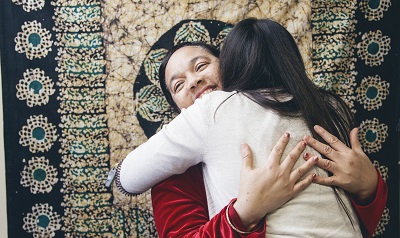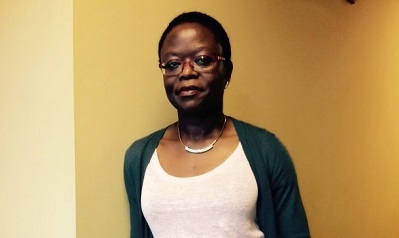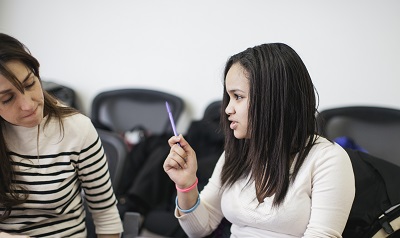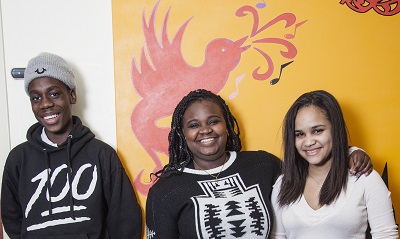Many people struggle with how to assist a friend in an abusive relationship. Clinical Director Laura Fernandez shares how you can help.
Domestic violence happens to 1 in 4 women in the United States, and abuse can affect anyone, regardless of age, race, gender, orientation, faith or class.
But because we rarely speak about domestic violence, many people struggle with how help when they suspect a friend is in an abusive relationship. We spoke with Laura Fernandez, Sanctuary’s Clinical Director, who shares some suggestions for how you can assist a friend facing domestic violence. Laura says:
1) Be a non-judgmental listener. It’s tempting to wonder “Why does she stay with him? Why is she letting him do that?” But if you want your friend to feel comfortable approaching you for advice, it’s important that you listen to her story, and avoid being judgmental of her decisions. If she feels judged or embarrassed, she may hesitate to return to you for help.
2) Ask what you can do. Don’t assume that your friend needs help or needs you to take certain actions. Asking him how you can help is the most effective way to ensure you really are meeting his needs.
3) Validate that the abuse is wrong. Not every form of abuse involves physical violence, and your friend might not be sure that her partner’s behavior is abusive. If your friend’s partner is exhibiting behavior that raises red flags, confirm for her that those actions are not a part of a healthy relationship.
4) Share information. Victims of domestic violence are often isolated by abusers and can’t get important safety information, or aren’t aware that resources are available. Compile a list of hotline numbers and community resources, show your friend the Power and Control Wheel, or look up how to make a Safety Plan. Arm your friend with resources so that when he is ready to leave, he can.
5) Let your friend feel in control. Abuse is all about the dynamic of power and control that an abuser holds over a victim. Your friend may already be feeling powerless in her situation – don’t exacerbate that feeling by telling her what to do. Empower her to make the best decisions for herself.
6) Offer to be there. Your friend may need to go to court to file an Order of Protection, or may decide to visit a Family Justice Center to get help. These steps can be difficult and even scary for someone trying to get out of an abusive relationship. Offer to accompany your friend to these important meetings – having someone he trusts nearby may make all the difference.
7) If you see something, say something. You may notice your friend has a black eye, bruises on her arms, or other physical injury – don’t stay silent. It’s important to ask her what happened (in a calm and non-judgmental manner), check that everything is ok, and show that you care.
8) Provide a safe space for belongings. If your friend is at risk of injury or thinking about leaving soon, offer to store important documents, a bag of clothes, and other necessities in your home so he can easily access when he leaves.
9) Never say “I told you so.” Studies show that the average survivor of abuse tries to leave seven times. Your friend may leave, and return, and it may happen more than once. This can be incredibly frustrating to witness, but it is important not to express that frustration to your friend. Provide her with support so that she can get out and stay out when she is ready.
10) Take care of yourself. It’s not easy to see a friend or loved one experience abuse – it can be frustrating and deeply saddening. Because of that, it is important to take care of yourself when assisting a friend in an abusive relationship. Even when it seems like your efforts aren’t making a difference, know that just the act of listening and being a friend is an important – and potentially lifesaving – intervention.



